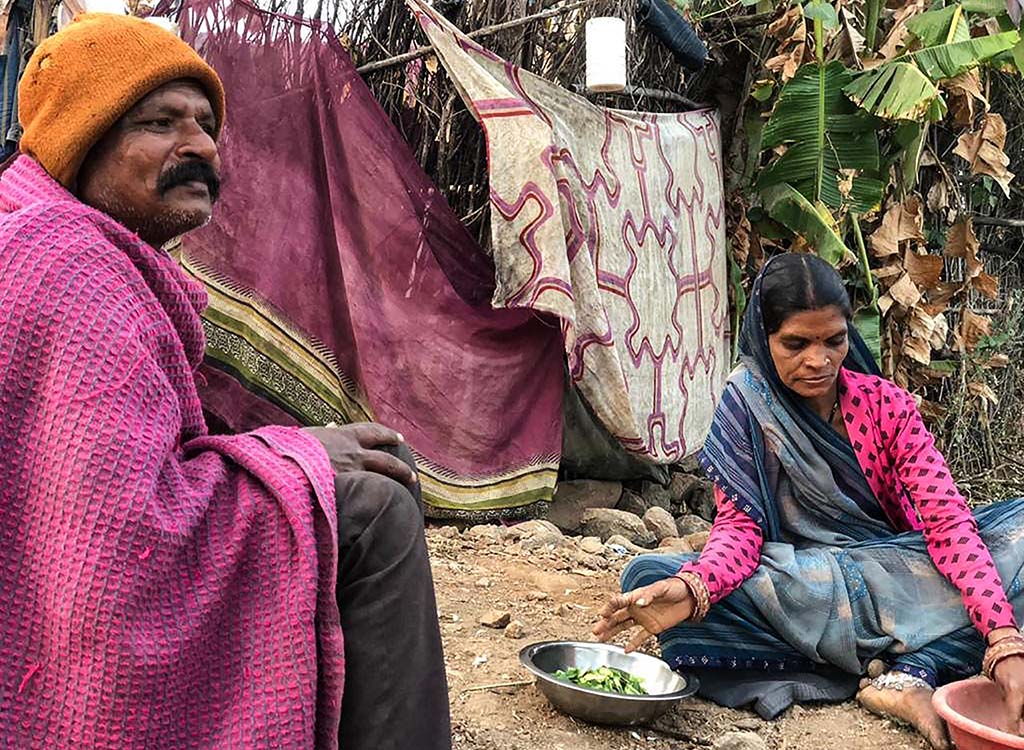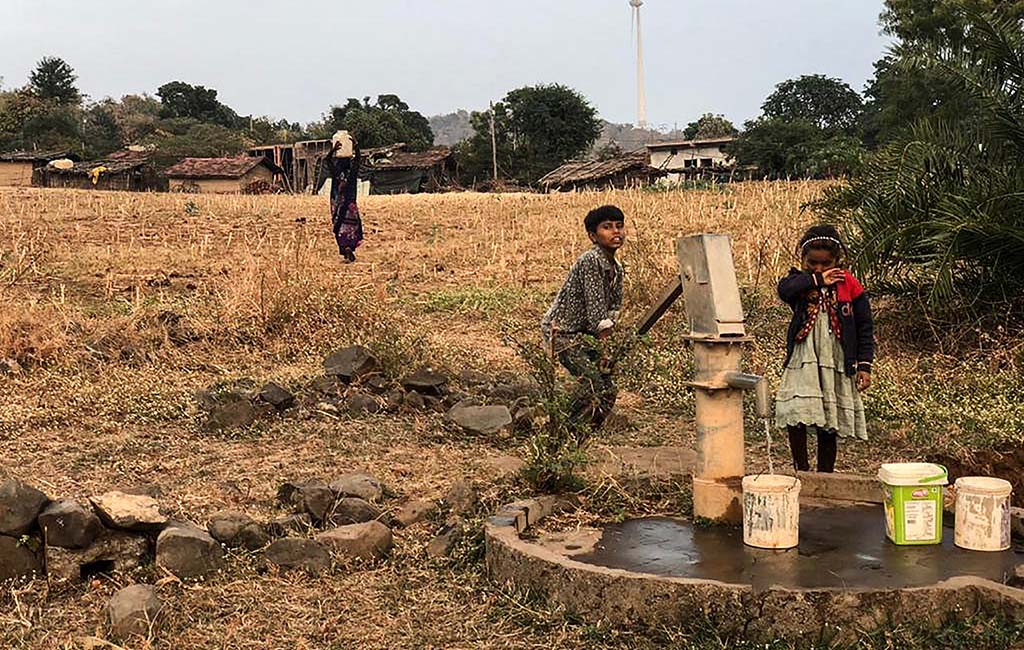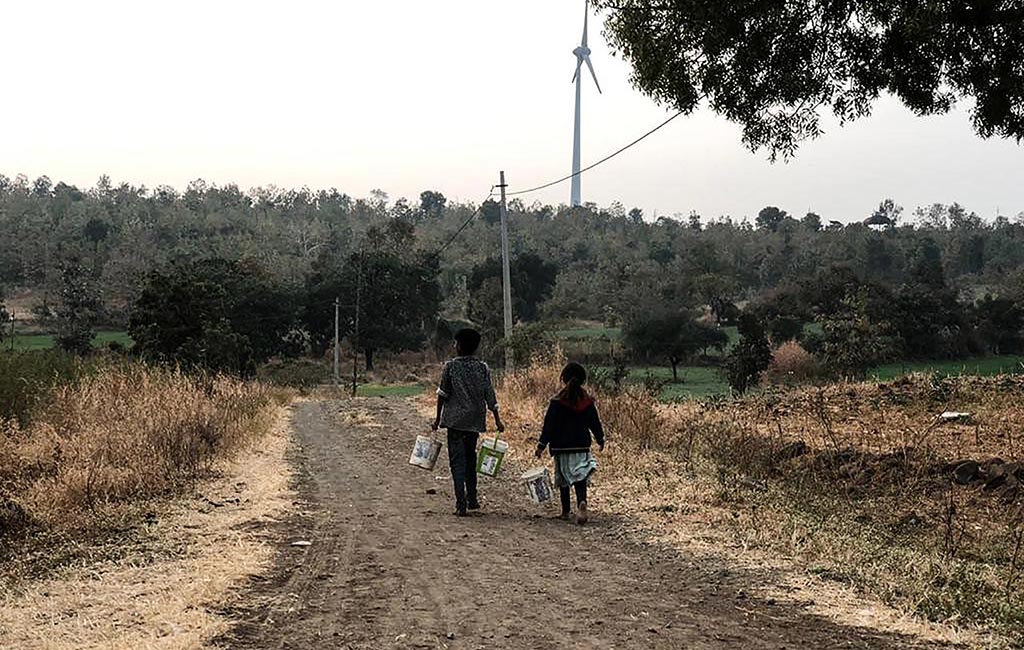
With nowhere to go, new year brings no cheer to landless Adivasis in Madhya Pradesh
Hundreds of Adivasis of Shukrawasa village in Madhya Pradesh stare at an uncertain future, risking eviction from the land they toil on but do not own.

Hundreds of Adivasis of Shukrawasa village in Madhya Pradesh stare at an uncertain future, risking eviction from the land they toil on but do not own.
As the world celebrated the advent of another New Year, hundreds of landless Adivasis in Shukrawasa – a tiny village set amidst vast green fields and undulating hillocks in the Dewas district of Madhya Pradesh – found little reasons to cheer.
Going by their bleak past, there was little to suggest that 2023, or for that matter the years to come, would bring better luck.
Ask Hari Singh Patel and he would tell you why there is overwhelming gloom instead of any trace of jubilation at Manjira Tola – locally called tappar – in one corner of the village.
It is here – a cluster of shanties – where all the hapless and landless residents of Shukrawasa such as Patel lead dreary lives without much hope.

“I grew up here, cultivated crops, preserved nature, raised cattle and livestock, worked in farms as a daily wage labourer, made friends, got married, raised family and even cremated the departed members of our community in the nearby crematorium,” rued Patel. “But I could never own a piece of land here.”
His disappointment is profound as it is the same land which his forefathers cleared of stones and thick bushes having chased wild animals away, paved roads, dug canals and watered the dry soil to make it cultivable.
The land is their home. But the Adivasis of Shukrawasa do not own it.
“Governments have come and gone. So have officials and elected representatives. But none has given us our patta-pavati (lease and ownership title),” Patel pointed out with a sigh.
His sighs have progressively become heavier with the passage of time.

Successive governments – both at the Centre and the state – have periodically looked into issues relating to the Adivasis from time to time, setting up high-powered committees to study and then suggest measures to ameliorate their situation.
Also Read | Tribal women in Rajasthan assert citizen rights
Consequently, reports have been submitted for the consideration of the government. The first was perhaps in 1961 when the Dhebar Commission filed its findings. Then came more – from teams headed by Dileep Singh Bhuria and BL Mungekar.
Each of them studied the Constitutional provisions for scheduled areas and the dissatisfaction of the tribes living there.
But the plight of landless Adivasis in Shukrawasa or elsewhere has not changed much. Millions of them remain landless, their heart-breaking stories largely forgotten amid intermittent festivities such as the one accompanying the New Year.
Belu Singh, for example, came to live in Shukrawasa. He cultivates a small patch of land that one of his relatives allowed him to work on.
“I grow maize and the crop never even suffices when my grandchildren visit,” he said.

His biggest problem is he does not own the land that he tends to. Neither does his relative, making its possession uncertain and tenuous.
Similar is the shared uncertainly of many others in Shukrawasa, a village of some 1,200 people. In the absence of work, many migrate to neighbouring states like Gujarat and Maharashtra.
Lack of ownership means a myriad of problems, including an all-pervasive threat of eviction.
“With such harassment and oppression on a regular basis under various pretexts, it seems we are nobody. And that they are here only to displace us,” Patel said.
The Adivasis pointed out that the richer residents of the village in connivance with officials from the police and forest departments often try to illegally dispossess them of their land.
“A couple of years back the forest officials forced us to remove our taapra (livestock shed). It had been there since ages but we were helpless,” said Bana Singh, a handicapped farmer.
Electricity is another major issue associated with landlessness.
Since the Adivasis hold no land title, the electricity department refuses to provide permanent connection. And a temporary connection translates into double the tariff.

Other sundry consequences include inadequate compensation for crop losses and difficulty in securing bank loans.
Ironically, officials in Dewas have no clear idea about the extent of landlessness in the district.
“We do not have the figures of landless people,” said Mr Muralidhar, the superintendent of land records in Dewas. But he informed that the landless either did not possess land ever, or have sold it to meet emergency expenses at home such as weddings.
Also Read | How development excludes India’s tribal people
Old-timers say the issue of landlessness in the region is age-old.
Unfortunately, it has defied a solution even 75 years after India’s independence.
While the Forest Rights Act of 2006 empowers the forest-dwelling tribal communities and other traditional forest dwellers to access and use the forest resources in the manner they were traditionally accustomed to, the Right to Compensation and Transparency in Land Acquisition, Rehabilitation and Settlement Act, 2013, protects the tribes from eviction without rehabilitation and settlement.
“While the villagers have no idea about their rights, the laws that guarantee the same never reached them. They are thus too impoverished to resist any exploitation and claim their rights,” said Nishita Gour, a young activist of HOWL, a social and cultural organisation working in the region.
“Minus ownership, I am afraid soon they will be evicted for some big development project,” she added.
That’s an ominous prediction for the future. No wonder, wishes such as ‘Happy New Year’ did not ring happy at all in Shukrawasa.
The lead image shows Patel working on a farm that is not his own (Photo by Pranay Tripathi)
Pranay Tripathi is an Indore-based upcoming filmmaker. He is a Rural Media Fellow 2022 at Youth Hub, Village Square.